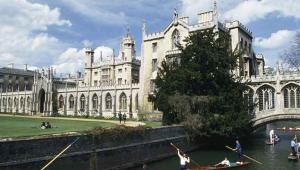By Marino Donati | 13 November 2014
The economic potential of England’s counties, towns and small cities is just as important as that of big cities, and they should get devolved powers too, says an independent commission.
According to the Independent Commission on Economic Growth and the Future of Public Services in Non-Metropolitan England, productivity could be boosted by £8.7bn if decision making over skills and training was devolved.
In its interim report, published today, the commission also called for the devolution of decisions over housing, infrastructure and transport. More effective ways of working across public sector organisations could save taxpayers £1bn over five years, it estimates.
The commission was established by the Local Government Association’s People and Places Board earlier this year, to explore the potential for improving services and boosting growth outside England’s big cities.
It says that these areas account for half of the country’s economy and population. Twenty-four FTSE 100 companies are located in shire areas, compared to four in big cities outside of London.
The interim report, titled How The Other Half Grows,says that a handful of shires are ready now for devolved decision-making about public services and tax. It predicts that more will be in the future, and the country will benefit hugely from devolutionary deals for both cities and shires.
Commission chair Sir John Peace said that although there was a consensus that decisions need to be brought closer to the businesses and people they affect, a true picture of where growth potential lies was missing.
‘Outside of London, shire areas produce the majority of England’s growth, have higher productivity, a better-skilled workforce, and are overwhelmingly the places globally mobile firms choose to locate,’ said Peace.
‘The mix of businesses, and the challenges faced by areas of less dense population, of more diffuse transport networks, of market towns, green belts, and small cities, are different, and so is the pattern of governance. The future of the economy and public services in these areas deserves as much attention as that of cities.
‘While it is clearly vital that cities should be empowered to catch up their deficit in growth, skills and productivity after decades of relative decline, it would be daylight lunacy to hold back the shires’ success story. Future policy change needs to build on the nation’s strengths as well as correcting weaknesses.’
County Council Network chairman David Hodge welcomed the findings.
‘They serve as an important to reminder that it is county areas who are the engines of economic growth, and it is our manufacturers, entrepreneurs and businesses who are safeguarding the UK recovery,” he said.
‘The exclusion of county areas from greater economic devolution is not an acceptable situation.’
The commission will publish a final report in January, which will make specific recommendations for change.






















